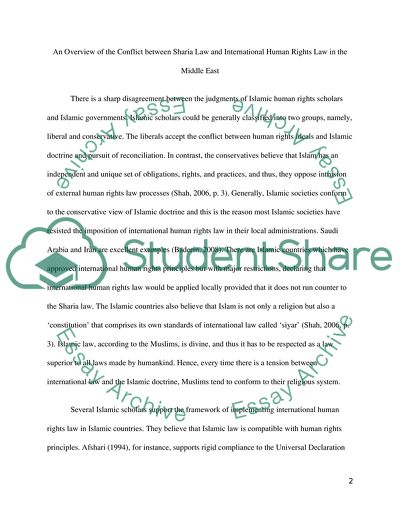Cite this document
(A Current Human Rights Issue in the Middle East Essay - 1, n.d.)
A Current Human Rights Issue in the Middle East Essay - 1. Retrieved from https://studentshare.org/law/1612968-current-international-human-rights-law-issues-in-the-middle-east
A Current Human Rights Issue in the Middle East Essay - 1. Retrieved from https://studentshare.org/law/1612968-current-international-human-rights-law-issues-in-the-middle-east
(A Current Human Rights Issue in the Middle East Essay - 1)
A Current Human Rights Issue in the Middle East Essay - 1. https://studentshare.org/law/1612968-current-international-human-rights-law-issues-in-the-middle-east.
A Current Human Rights Issue in the Middle East Essay - 1. https://studentshare.org/law/1612968-current-international-human-rights-law-issues-in-the-middle-east.
“A Current Human Rights Issue in the Middle East Essay - 1”, n.d. https://studentshare.org/law/1612968-current-international-human-rights-law-issues-in-the-middle-east.


